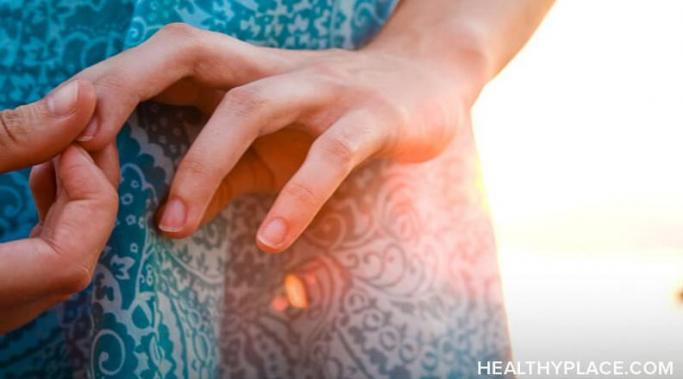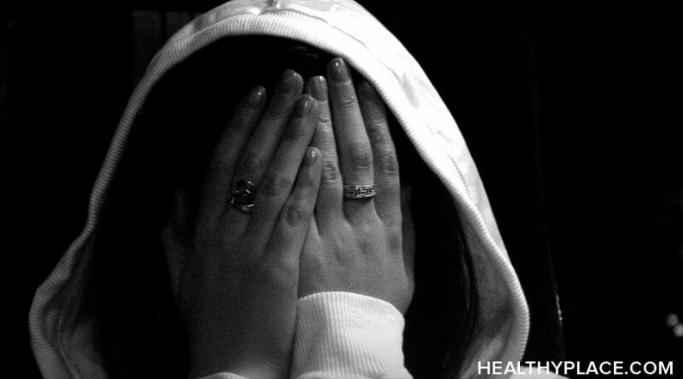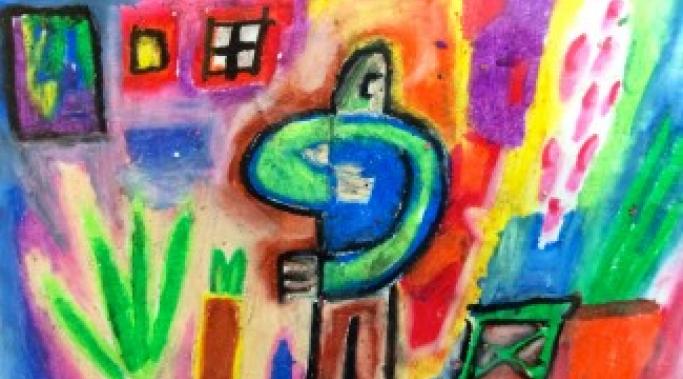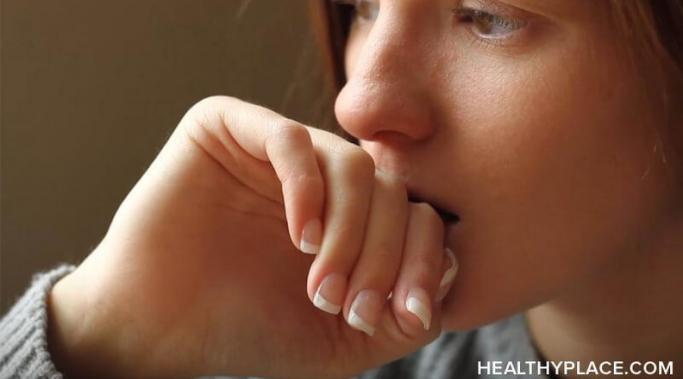Blogs
I have schizoaffective disorder, bipolar type. It’s very common for anxiety to accompany bipolar disorder. So that means I have to deal with all the stress, obsessive worries, and other pitfalls of anxiety while dealing with my schizoaffective disorder (and many are in this same situation with schizophrenia). Let me give you a breakdown on what it's like living with schizoaffective disorder and anxiety.
It’s easy to be ashamed of having low self-esteem. Low self-esteem is generally perceived as a weakness and it’s often stigmatized. Having low self-esteem is bad enough, but feeling ashamed can make it a lot worse. Shame may prevent you from speaking up, seeking the help you need and it can also be isolating. You may want to hide away from the world or avoid talking to others. However, you can improve your self-esteem when you stop feeling ashamed.
Borderline personality disorder (BPD) is widely underdiagnosed. However, the problem is not just a matter of healthcare access, as even BPD individuals who seek treatment are misdiagnosed. The problem runs deeper in the packaging and distribution of knowledge among professionals. The majority of mental healthcare providers hold misconceptions about BPD, and even those who don’t seem to perpetuate myths around borderline personality disorder.
Experiencing any type of trauma will inevitably leave a lasting impact on a person’s life. When children and adolescents experience a traumatic event, it can impact various stages of their development. Because of their young age and lack of life experience, children often do not possess the appropriate coping skills needed to deal with trauma in a healthy way. (3 Key Things to Prepare Children to Deal with Traumatic Events) For this reason, receiving treatment can be extremely beneficial in helping youth overcome the symptoms that may arise as a result of traumatic experiences. But the thought of seeking treatment for your child after he or she went through a traumatic experience can be intimidating because you know that he or she will inevitably have to talk about all of the things that happened to him or her. You may wonder if rehashing the events themselves will ultimately cause your child to feel more pain, leaving you to question whether or not it would be better to just let time heal the wounds.
Growing up is difficult. It is unstoppable, beautiful, ugly, painful and hard. It is full of examinations, zits, hormones, bad hair days and unrequited crushes. Awkward first dates, sloppy first kisses and neon pink eyeshadow that really does not look good with those red skyscraper shoes. But throw a mental illness and a desire to date into the mix and growing up can be torturous.
Recently, I remembered the time I was kicked off a mission trip to Mexico because of my "demonic influence" (depression). It's a wound that has not yet fully healed, largely because it altered my career path (I was going to become a missionary until my diagnosis became a big red flag). Many christians believe three lies about mental illness.
Recently, I have developed an intense fear of flying, and it is quite odd because it never used to be this way. In my mid-20s, I flew to South Korea twice, and I even passed out during the entire flight, snuggled beside the emergency exit. Things have definitely changed over the years, and having a mental illness has made traveling quite a bit more daunting. Not only because of the fears that crop up, but from encountering stigma during my travels.
When you are struggling with self-harm, it is very rare that when someone asks about a visible cut or burn, you will answer with the truth. There are the occasional few who will honestly answer that question and admit to their struggle without embarrassment or insecurity. While that kind of behavior does occur once in a while, more times than not people who self-harm use cover stories for self-harm scars.
You may be thinking, "Yeah right, it's impossible control your emotions. If it was easy I would have done so years ago." But responding wisely, or controlling your emotions, is not as hard as it seems. When you learn how to control your emotions your confidence improves tremendously. The truth is, emotions are intense and, at times, feel like they rule your life. When this happens, you have less self-control which leads to more impulsive and emotional decision making, depleting your confidence in the long run. But you can learn how to control your emotions and feel confident.
When you have binge eating disorder, it can sometimes come with massive weight gain as a side effect. It seems pretty obvious that overeating can cause you to gain weight, but that's not always the case and it should never be an assumption. But when it does happen, the reality of gaining weight quickly because of binge eating disorder can be very difficult to process and come to terms with.









